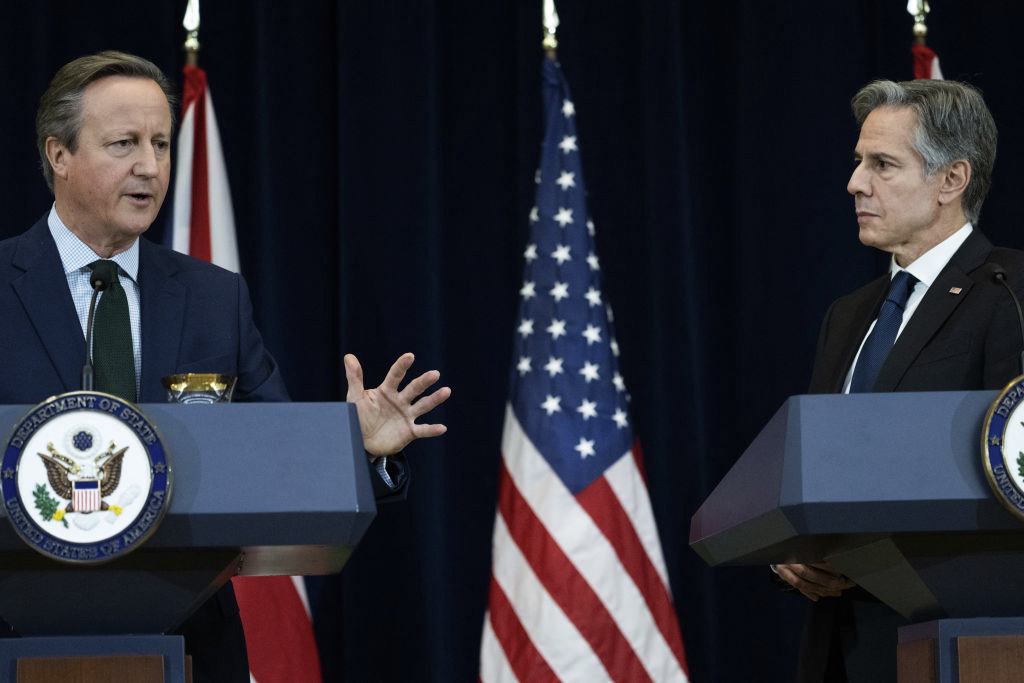The hard truth is that for millennia, the land of Israel, whether occupied by Jacob’s tribes or others, has been the domain of countless generations of Israelites. The vast majority of Israel’s citizens, and many Jews in the diaspora, understand their rights to retain their homeland after escaping 400 years of slavery in Egypt. At its core, the debate over this tiny area of land is founded on three primary factors: spiritual, national, and political. In the result, the conviction of the majority populace is that not one square inch of the current boundaries of Eretz Yisrael (the Land of Israel) can belong to anyone who might harm them again, although people of peace are always graciously allowed to reside among them.
In the minds of the most committed Jews, their land is sacred, promised to them by their Creator, and deserves to remain under authority and control of the Jewish nation. It is therefore a fantasy to expect that this ancient land would be willingly parcelled out, especially to enemies of that nation. Furthermore, actions by Western nations to compel expropriation of any portion of the land accords with an anti-Zionist and anti-Semitic ideology irrespective of commendable, but mistaken, motives. Such action would again expose the Jewish people to existential danger, as is evident throughout centuries past and most recently on October 7, 2023. No lasting peace could possibly ensue from partitioning this ancient soil. It is unrealistic to expect that historic enemies could harmoniously reside in close proximity to each other when one party keeps vowing to destroy its peaceful neighbour.
The enforced relinquishing of Israeli control over the Gaza Strip to the Palestinian people in 2005 is what directly enabled the tragic events of October 7. A politically driven and short-sighted move, energized by a naïve anticipation of peace, has come full-circle to devastate the residents of Israel and Gaza whether Jews, Druze, Christians, Muslims or others. This demonstrates once again that Israel cannot share space with those seeking its destruction.
At the age of 100 and at apex of his wisdom and experience, while referring to events of October 7, Henry Kissinger emphasized this point: «The two-state solution doesn’t guarantee that what we saw in the last weeks won’t happen again.» He was correct. The Quran (Sura 2, verse 193) does not allow for peace or compromise with non-Muslims:
«And fight them until there be no more sedition, and religion will be Allah’s alone. So if they desist, then there is to be no violence save against the wrong-doers.»
Commencing with the founding of Islam in the seventh century, the ideology of compelling obeisance to Islam for everyone, often by «any means necessary,» is a main motivating force behind conflicts against Jews, Christians, non-Muslim Arabs, and those of other faiths.
Nonetheless, against all strategic intelligence regarding the feasibility of a two-state scenario, UK Foreign Secretary David Cameron on January 29, 2024, at the House of Commons, announced a political plan to partition Israel into two states, while bypassing Israel’s opposing position. Cameron said:
«We should be starting to set out what a Palestinian state would look like – what it would comprise, how it would work.
«As that happens, we, with allies, will look at the issue of recognising a Palestinian state, including at the United Nations. This could be one of the things that helps to make this process irreversible.»
The same contention pertains to Antony Blinken, the US Secretary of State, who is considering recognition of an independent Palestinian state with supposed security guarantees for Israel. Both Blinken and Cameron reveal their simplistic, and somewhat imperialist, Western approach to a complex Middle Eastern situation, irrespective of the aims and intentions of the two parties chiefly involved: the radical Islamists of Gaza and the West Bank, and the State of Israel itself.
To the contrary, the Prime Minister of Israel, Benjamin Netanyahu, thoroughly understands that his country’s citizens cannot in practice share space with their sworn enemies. On January 18, 2024, he issued a public statement to the effect that in a post-war setting:
«Any future arrangement, or in the absence of an arrangement, Israel must maintain security control of all territory west of the Jordan River — meaning Israel, the West Bank, and Gaza. That is a vital condition.»
Netanyahu’s determination reflects the unfortunate reality of Islamist bellicosity, which is clear from the recent outburst by Imam Alhagie Jallow of the Madinah Community Center in Madison, Wisconsin, on October 13. Just six days after the events of October 7, the imam declared:
» It’s only jihad that can bring victory. Not contracts, not agreements, not alliances – not any of these things… By Allah, all of the Jews will be killed by Muslims. They will all be executed by Muslims; they will all be killed.»
Hamas leaders openly admit that they seek ownership of all Israel’s land, not only Gaza: they deny the legitimacy of Israel’s existence. During late January 2024, senior Hamas official Khaled Mashaal, speaking from his safe-haven in Qatar, underscored the Palestinian claim to all of Israel: «from the Jordon river to the Mediterranean sea; the West Bank, Gaza, and all of Israel.» This intent, clear in the Hamas’s original 1988 charter was purportedly redacted in the supposedly revised Hamas 2017 charter , but Articles 19- 27 clarify that:
19. There shall be no recognition of the legitimacy of the Zionist entity.
20. Hamas believes that no part of the land of Palestine shall be compromised or conceded, irrespective of the causes, the circumstances and the pressures and no matter how long the occupation lasts. Hamas rejects any alternative to the full and complete liberation of Palestine, from the river to the sea. However, without compromising its rejection of the Zionist entity and without relinquishing any Palestinian rights, Hamas considers the establishment of a fully sovereign and independent Palestinian state, with Jerusalem as its capital along the lines of the 4th of June 1967, with the return of the refugees and the displaced to their homes from which they were expelled, to be a formula of national consensus. [The «1967 Armistice Line»- (Emphasis added, Ed.)]
21. Hamas affirms that the Oslo Accords and their addenda contravene the governing rules of international law in that they generate commitments that violate the inalienable rights of the Palestinian people. Therefore, the Movement rejects these agreements and all that flows from them, such as the obligations that are detrimental to the interests of our people, especially security coordination (collaboration). [Emphasis added, Ed.].
22. Hamas rejects all the agreements, initiatives and settlement projects that are aimed at undermining the Palestinian cause and the rights of our Palestinian people. In this regard, any stance, initiative or political programme must not in any way violate these rights and should not contravene them or contradict them.
24. The liberation of Palestine is the duty of the Palestinian people in particular and the duty of the Arab and Islamic Ummah in general.
25. Resisting the occupation with all means and methods is a legitimate right guaranteed by divine laws and by international norms and laws. At the heart of these lies armed resistance, which is regarded as the strategic choice for protecting the principles and the rights of the Palestinian people.
26. Hamas rejects any attempt to undermine the resistance and its arms. It also affirms the right of our people to develop the means and mechanisms of resistance. Managing resistance, in terms of escalation or de-escalation, or in terms of diversifying the means and methods, is an integral part of the process of managing the conflict and should not be at the expense of the principle of resistance.
27. A real state of Palestine is a state that has been liberated. There is no alternative to a fully sovereign Palestinian State on the entire national Palestinian soil, with Jerusalem as its capital.
On January 31, 2024, political analyst George Weigel addressed the gullibility of Western leaders this way:
«Too many Western policymakers cannot imagine that calls to various forms of violent jihad, whether from Sunni or Shiite Islamic sources, make any real difference for professionals find it hard to take religiously-based political radicalism seriously. Yet it’s precisely because it’s religiously grounded that such radicalism is exceptionally dangerous.»
Weigel’s point is valid: due to reasons of religion, no accommodation is possible. Even if a political compromise were reached over Gaza, or, the «1949 Armistice Line» as in the revised 2017 Hamas charter, the violent struggle for control over the rest of Israel, particularly the West Bank — the «heart» of Israel — will persist.
The CEO of tech-giant Oracle, Safra Catz, emphasized this view in January 2024 when she said:
«They [Hamas] told us in all of their statements that their charter is to destroy Israel and exterminate the Jews. Other countries have said the same thing. It’s also in the Houthis’ charter. It’s in Iran’s direct messaging. I think that when they tell you they want to kill you, you should believe that. I think that’s the lesson.»
Realistically, the Palestinian claim to Gaza is based on tenuous grounds. Gaza is not the traditional homeland of the so-called Palestinian people. They are simply a collection of nomadic Arabs who forged that identity for political expediency. This arrangement was openly stated by the late PLO executive committee member, Zoheir Moshen, in an interview with James Dorsey for the Dutch newspaper Trouw, on March 31, 1977:
«The Palestinian people does not exist. The creation of a Palestinian state is only a means for continuing our struggle against the state of Israel for our Arab unity. In reality today there is no difference between Jordanians, Palestinians, Syrians, and Lebanese. Only for political and tactical reasons do we speak about the existence of a Palestinian people since Arab national interests demand that we posit the existence of a distinct ‘Palestinian people’ to oppose Zionism.»
Some Palestinians may have been early settlers in the land, others not — unlike the Jewish people who have lived there for more than 3,600 years. It appears that part of Islamist strategy is to take ownership of certain words and slogans and to reverse their intended application. For this reason, Jews are referred to as «occupiers» of Israel, implying that Gaza, Judea and Samaria were the original Palestinian homeland, despite voluminous written and archaeological evidence to the contrary.
The ancient Jewish Israelites, the Israelis, according to verifiable historical evidence, are indigenous people as much as anyone else. The term, «Syria Palaestina» was first used by the Roman Emperor Hadrian around 135 CE to try to sever all connections of the Jews to the land after their failed Bar Kochba Revolt in 67 CE. For the last hundred years or so, since the breakup of the Ottoman Empire, the word «Palestinian» has applied to those people who happened to be born in that region during the League of Nations’ British Mandate for Palestine; their passports stamped «Palestinian» due to the location, not ethnicity or origin.
Empowering Gazans to be self-governing in 2005, free of Israel’s presence, was possibly made in the hope that they would coexist with their Jewish neighbours in harmony. The 1993-1995 Oslo Accords, signed by Palestinian Liberation Organization (PLO) chairman Mahmoud Abbas and Israeli Foreign Minister Shimon Peres, stated that:
«[It] is time to put an end to decades of confrontation and conflict, recognize their mutual legitimate and political rights, and strive to live in peaceful coexistence and mutual dignity and security and achieve a just, lasting and comprehensive peace settlement and historic reconciliation through the agreed political process.»
The breaches of these material conditions on October 7 by Hamas as representative of the Gazan Palestinian people, are solid grounds for invalidating the compact as a whole. Israel has the legal and moral right to re-take control of their own land and to remove all harmful elements: they never ceded permanent title to their land.
The military forces of Israel currently undertake this onerous task with courage and determination and comply, as far as practicable, with constraints of just war principles and the human rights of non-combatants. Even then, wild and unsubstantiated allegations of genocide against the Palestinian people are made by anti-Zionists and proponents of Marxist liberation theology, which sees the world through a lens of the oppressor and the oppressed.
So, lessons from the partition of sections of Eretz Yisrael have been learned the hard way; division of land in order to accommodate genocidal enemies cannot again be considered. Any form of permanent division without oversight and realistic security measures (for third-party guarantees are basically worthless) must remain an unrealisable dream, a chimera, for those seeking to deprive the Jewish people of their ancestral sanctuary. Let Israel choose strong leaders who recognize this reality; and let them be gracious to law-abiding people of peace who call Israel their home. Although they might not be of Jewish origin, there is a divine command at play:
«You shall treat the stranger who sojourns with you as the native among you, and you shall love him as yourself, for you were strangers in the land of Egypt: I am the Lord your God.»
Given the rapid global rise of anti-Semitism and anti-Zionism, the isolated position that the people of Israel face is well expressed by Leon Kass when, in the spirit of Boer Bittereinder confronting the mighty British empire, he says:
«It is left to little Israel to make the first stand against radical evil and the new axis of nations dedicated to the demise of the West. With resolve, courage, and dedication, but, alas, with much more sacrifice, Israel will show the way.»
The words of the late UK Chief Rabbi Jonathan Sacks preceded Kass’s remarks:
«Jews are a nation of strong individuals. The whole community is holy, every one of them. They always were. They still are. That is their strength.»
In conclusion, Russian-British scribe Konstantin Kisis exposes the inane, naïve, and languid attitude of Western leaders when he posits:
«And the truth is that we have indulged in magical thinking for too long, choosing comforting myths over harsh realities. About terrorism and a host of other issues. Now the world is paying a price for that self-indulgence.»
Kisis implies that jihadist actors take advantage of Western concepts of natural law with its moral, humanitarian, and ethical rubrics that constrain retaliatory or pre-emptive actions. While averring Islamic religious convictions, radical Islamists decry Western moral restraints and instead reveal a set of doctrines, at times disturbingly assertive, emanating from the Quran and various Hadith, that validate their actions. Unswerving dedication to their ideology guarantees they will persist in their agenda, intending to kill or convert every last Jew, Christian and «disbeliever,» until they achieve their doctrinal goals.
Nils A. Haug is an author and columnist. A trial lawyer by profession, he is member of the International Bar Association, the National Association of Scholars, the Academy of Philosophy and Letters. Retired from law, his particular field of interest is political theory interconnected with current events. He holds a Ph.D. in Theology (Apologetics). Dr. Haug is author ofPolitics, Law, and Disorder in the Garden of Eden – the Quest for Identity (March 2023); and Enemies of the Innocent – Life, Truth, and Meaning in a Dark Age (November 2023). His work has appeared in First Things, The American Mind, Minding the Campus, and The Quadrant.






